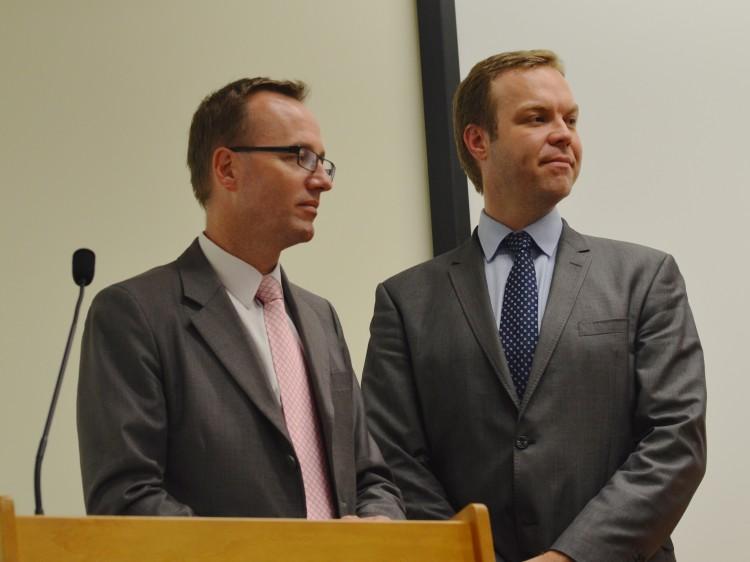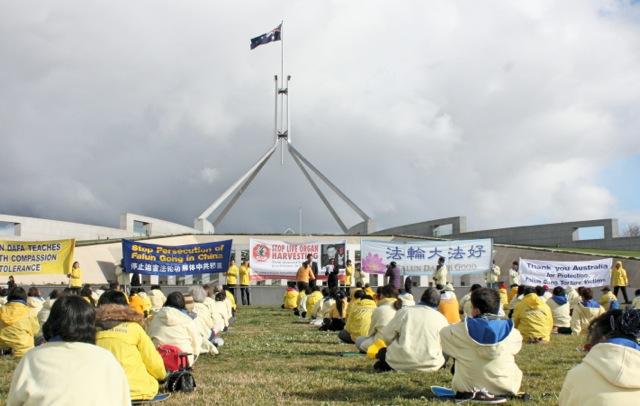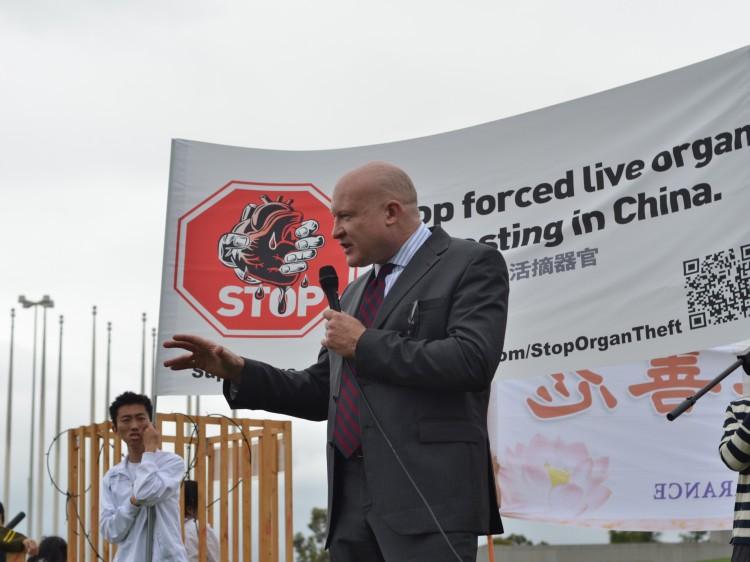SYDNEY—New South Wales Government must take initiative to address transplant abuse in China and enact laws to deter Australian residents from seeking quick organ donations, said a NSW legislator in a parliamentary debate on Feb. 28.
NSW State Parliament legislators held a formal discussion on the issue of forced organ harvesting and the potential responsibilities of New South Wales in discouraging organ transplants, surgical training and organ transplant exchanges with China.
The discussion was scheduled in the Legislative Assembly after 10,000 petition signatures were tabled by the Greens member for Balmain, Jamie Parker. The petitions were collected in Sydney by human rights activists, many from the Falun Gong spiritual practice.
“[Organ harvesting] creates a shocking and unacceptable global trade in human organs,” said Mr Parker during his five-minute speech before Parliament.
“This practice needs to stop. The harvesting of these organs is not only immoral … it is something people must stand up to.”
Mr Parker refers to the practice where citizens from Australia may choose to travel to China to receive a quick transplant operation.
Canadian human rights lawyer David Matas and former politician David Kilgour published a report in 2006 on organ harvesting practices. Direct phone calls into China by their team of investigators found that it takes no more than two weeks to receive an organ in China. In Australia, the waiting period is up to two years.
“[This] highlights the important steps the Government needs to take to ensure that organs are not being harvested in China, and Australians cannot visit such countries to have organs transplanted,” Mr Parker said.
Law reform in consultation
The Greens are currently proposing a law reform to create specific offences for receiving harvested or trafficked organs within New South Wales or overseas.
“One way of addressing this brutal trade is for countries such as Australia to impose a prohibition on its citizens and residents from receiving trafficked organs wherever this transplant occurs,” said Mr Parker during the Parliamentary debate.
The draft Human Tissue Amendment (Trafficking in Human Organs) Bill 2013 is in consultation in NSW Parliament until March 7. It was drafted by the Upper House Greens member David Shoebridge and was based on the Draft Canadian Legislation BILL C-500.
The amendments seek to impose higher penalties for sourcing or trafficking vital organs, carrying a maximum penalty of 25 years imprisonment—an equivalent sentence to manslaughter.
Mr Parker believes this will address not only organ trafficking, but transplant tourism—a practice of travelling to countries and regions where organs are readily available from unwilling donors.
“[NSW Government] can introduce limitations by criminalising the conduct, and it can achieve its goal of reducing the number of New South Wales residents willing to undertake this activity,” said Mr Parker.
Meanwhile, Liberal Member of Parliament David Elliot said that organ harvesting should be addressed at the Federal level. While acknowledging that the issues raised in the petition are taken “very seriously” by the current Government, he questioned the scale of transplant tourism.
“The issue of transplant tourism from New South Wales is not particularly prevalent, with only one or two cases annually. Such people are advised against engaging in transplant tourism by their doctors, but they cannot be compelled to heed this advice,” Mr Elliot said.
An article in the 2005 issue of the Medical Journal of Australia titled “Outcome of overseas commercial kidney transplantation: an Australian perspective”, provides limited data on the issue.
The data lists 16 patients who were seen at Sydney’s St George area hospitals after receiving kidney transplants overseas. These included surgeries performed in India, Iraq, the Philippines, and China.
The data lists transplant operations performed between 1990 and 2004. Seven out of the 16 cases were in China. The article warned that overseas organ transplants carry significant risks of HIV, hepatitis and rejection.
Reports of forcible organ removal from unwilling donors in China have circulated since the 1990s, but frequently have been dismissed as speculation or hearsay.
Ethan Gutmann, a UK-based investigative writer and researcher, disagrees. He has interviewed over 100 witnesses and says it is not a question of whether it occurs, but rather how many thousands have been murdered.
Falun Gong practitioners comprise the majority of the donor pool, says Mr Gutmann. His research has suggested at least 65,000 practitioners of the spiritual discipline were subjected to organ harvesting between 2000 and 2008.
Other key targets include House Christians, Uyghur Muslims, democracy activists, and prisoners of conscience detained within China’s vast labour camp system.



